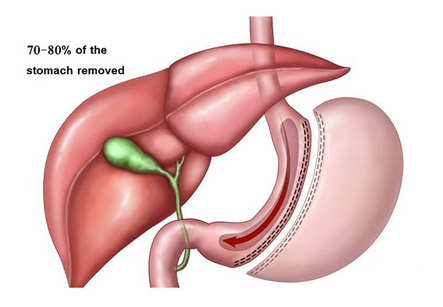Gastric Sleeve Surgery
Introduction
Gastric sleeve surgery (also known as sleeve gastrectomy) is similar to gastric bypass as it attempts to make the stomach smaller so that it can hold less food, and it may be prescribed for severely obese individuals. Obesity affects millions of people worldwide and is often the root cause of other diseases like heart disease, diabetes, joint and bone diseases and even cancer. The smaller size of the stomach ensures a rapid feeling of fullness after small meals and it prevents overeating to some extent.
The procedure
Gastric sleeve surgery can be done under general anesthesia wherein the patient is rendered unconscious during the operation. The surgeon makes a large incision in the abdomen
Heavy exercise, lifting weights or bending over are not advised in the initial few weeks after the operation.
We have all the information you need about public and private clinics and hospitals that provide weight loss surgeries in Iran, Islamic Republic Of with the best quality and lowest possible prices

To approach the operative site, or make a number of smaller incisions, to perform the operation under the guidance of a small camera at the tip of one of the thin instruments, this is called the laparoscopic approach.
During the operation the surgeon removes a large part of the stomach, the rest of the stomach is made into a tube like cavity or sleeve with the size of approximately that of a banana. Since the rest of the stomach is removed, this weight loss surgery is not reversible.
Post operative symptoms
Sleeve gastrectomy patients may experience some pain which can be relieved with pain killers, plus they could also experience some diarrhea and nausea after the operation. Heavy exercise, lifting weights or bending over are not advised in the initial few weeks after the operation.
Some risks and considerations
Some complications may include bleeding or leakage of stomach’s contents into the abdominal cavity, which can lead to a life threatening infection called peritonitis. Additionally, this operation could raise the risk of getting gallbladder stones or blood clots that may clog blood vessels in the brain or lungs leading to life threatening complications.
Patients may also suffer from anemia after the operation due to poor nutrition. In the long term, there could be malnourishment or deficiency of vitamins and nutrients due to the operation, but this can be corrected by taking prescribed vitamins and other nutritional supplements. A diet plan will be drawn up for the patient after the surgery plus initially (for one month approximately) after the operation the patient will be advised to take only liquid or soft foods that can be handled by the smaller stomach, until the wounds of the surgery are fully healed.
Slowly, solid foods can be introduced but the patient is advised to chew food very well and stop immediately when they feel full, over eating may lead to nausea or even vomiting. Drinking high calorie liquids like sodas and sweetened beverages will negate the usefulness of the operation and the patient will not lose weight as expected after gastric sleeve surgery.
Lifestyle considerations
Weight loss surgery is not just a procedure that removes fat and it is not a cosmetic procedure. Patients who have been prescribed this operation need to be counseled before hand on the extent of the weight loss that is possible after a gastrectomy sleeve surgery. In addition to the surgery a healthy lifestyle incorporating a balanced diet, regular physical activity and avoidance of high calorie foods and alcohol will help to maintain the weight loss and improve general health.